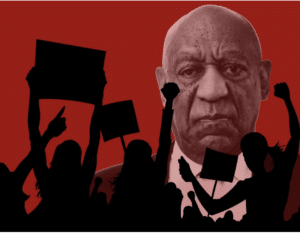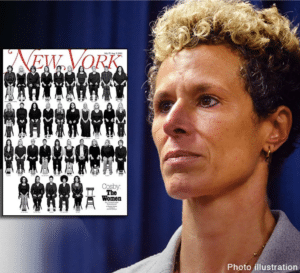I was already on record expressing dismay about Bill Cosby’s relatively lenient sentence. I refer you in this regard to “Cosby Gets 3-10 Years. He Got Off Easy.” September 25, 2018.
Now comes this – courtesy of Wednesday’s edition of The New York Times:
__________
Bill Cosby was released from prison Wednesday after the Pennsylvania Supreme Court overturned his 2018 conviction for sexual assault, a dramatic reversal in one of the first high-profile criminal trials of the #MeToo era.
 The court’s decision seemed likely to end the Pennsylvania case, legal experts said, and while more than 50 women across the nation have accused Mr. Cosby of sexual assault and misconduct, statutes of limitations in their cases makes further prosecutions unlikely.
The court’s decision seemed likely to end the Pennsylvania case, legal experts said, and while more than 50 women across the nation have accused Mr. Cosby of sexual assault and misconduct, statutes of limitations in their cases makes further prosecutions unlikely.
Mr. Cosby had served three years of a three- to 10-year sentence at a maximum-security prison outside Philadelphia when the court ruled that a ‘non-prosecution agreement’ with a previous prosecutor meant that Mr. Cosby should not have been charged in the case.
Mr. Cosby, 83, returned to his home in suburban Philadelphia on Wednesday afternoon where, looking frail and walking slowly, he was helped inside by his lawyer and a spokesman. He flashed a ‘V’ sign as he reached his front door.
__________
Unsurprisingly, his accusers were shocked and appalled. And most media networks seemed all too happy to channel their outrage.

Most notable were reports that featured quotes from women’s rights advocates and legal scholars alike damning the court for “letting him off on a technicality.”
I sympathize. But I’m all too mindful that the technicality that got Cosby out on Wednesday is the technicality that should have precluded prosecutors from even trying him in the first place.
Clearly nothing can fully compensate for the harm he caused any of them. But his reputation and legacy are utterly destroyed, and he served two years in prison. That’s far more justice than most victims of similar crimes ever get.
I also appreciate why advocates for sexual-assault victims are warning that Cosby’s release might inhibit women from reporting assaults. It shouldn’t.
 This ruling merely warns prosecutors against enabling victims to strike deals for civil settlements that clearly preclude criminal prosecution. It’s for each victim to decide if she wants money or justice. Cosby’s case proves the two are often mutually exclusive.
This ruling merely warns prosecutors against enabling victims to strike deals for civil settlements that clearly preclude criminal prosecution. It’s for each victim to decide if she wants money or justice. Cosby’s case proves the two are often mutually exclusive.
Therefore, his accusers should reserve a little of their outrage for the prosecutor who pandered to them to try this case.
Finally, as unpopular as it would undoubtedly be, they might want to reconsider holding up Andrea Constand as the pioneering accuser for their cause. After all, but for the deal she struck with prosecutors to collect millions, instead of prosecuting him, he would probably still be in prison.
Related commentaries:
Cosby…